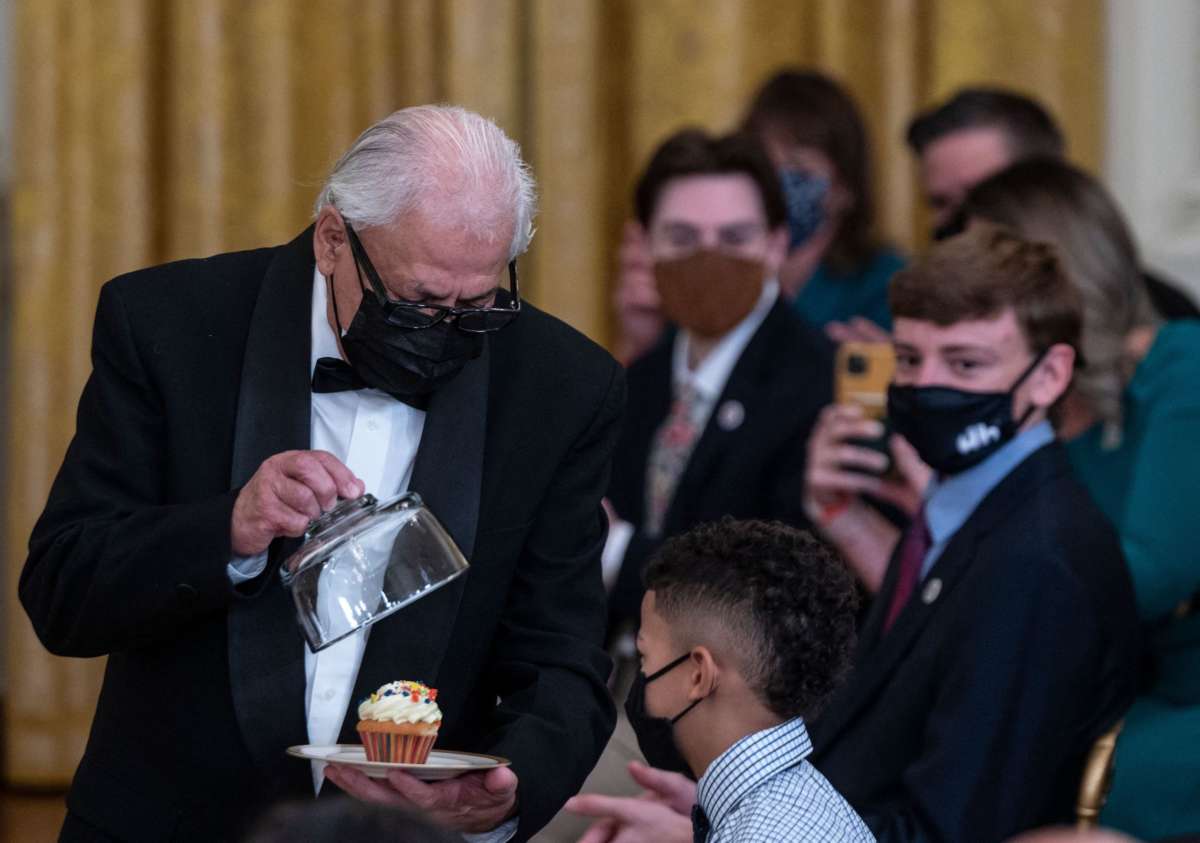Poverty rates hit a record low by some measures in 2021, the Census Bureau found in a new report released Tuesday, thanks in large part to the direct aid provided in stimulus bills passed by Congress over the first year of the pandemic.
The Census Bureau found that the poverty rate hit an all-time low of 7.8 percent last year, while the child poverty rate fell to an all-time low of 4.5 percent, according to the Supplemental Poverty Measure.
The Supplemental Poverty Measure takes a more holistic view of poverty, taking into account aid provided by public programs like Social Security and costs like food, shelter and utilities, rather than just looking at income and food costs like the Census’s traditional poverty measure. Because of the increase in costs taken into account, the supplemental poverty rate is typically higher than the official poverty rate, but dropped below the official poverty rate for the second time in history last year.
The programs that drove the largest reductions in poverty were Social Security, refundable tax credits like the expanded child tax credit and the stimulus checks, the agency found; these measures moved about 26 million, 10 million and 9 million people out of poverty last year, respectively. The expanded child tax credit, which expired at the end of 2021, lifted 5.3 million people out of poverty alone.
These findings are an astounding show of the efficacy of the measures put forth in the stimulus packages.
Not only did the aid help to keep millions from experiencing poverty, the Census measurements show, they also appear to have staved off losses that were expected from economic instability and unemployment rates last year. Indeed, the massive reductions in poverty rates came despite the fact that median household income remained statistically unchanged from 2020, adjusted for inflation.
“This has been a large-scale experiment that shows that child poverty is a solvable problem in the United States, and that poverty more broadly is,” Alix Gould-Werth, director of family economic security policy for the Washington Center for Equitable Growth, told The New York Times. “So in order to see these changes last, we really need sustained public investment.”
The Agriculture Department similarly found earlier this month that child food insecurity declined to an over two-decade low last year, thanks in large part to expansions in the U.S.’s social safety net.
Although the stimulus measures had a massive hand in reducing poverty and child poverty, conservatives in Congress fought to lessen or eliminate the direct aid in negotiations for the bills. Progressive lawmakers fought to keep the expanded child tax credit alive and continued to advocate for the program after it expired, but the program is effectively dead due to Republicans’ and Sen. Joe Manchin’s (D-West Virginia) opposition.
Republicans argue that continuing programs like the expanded child tax credit would provide aid to those who don’t truly need it, or that it would cost the government too much money.
But these arguments are fallacious; the Census analysis shows that the program helps millions of children who would otherwise experience poverty, while an investment into a version of the program would pay off 10-fold for the government, massively increasing health and education outcomes for both children and parents.
On the other hand, progressives have long argued that poverty is a policy choice, and that reducing poverty is not only the moral thing to do but also an economically sound choice to raise up low-income people and help rebuild the middle class.
Join us in defending the truth before it’s too late
The future of independent journalism is uncertain, and the consequences of losing it are too grave to ignore. To ensure Truthout remains safe, strong, and free, we need to raise $46,000 in the next 7 days. Every dollar raised goes directly toward the costs of producing news you can trust.
Please give what you can — because by supporting us with a tax-deductible donation, you’re not just preserving a source of news, you’re helping to safeguard what’s left of our democracy.
